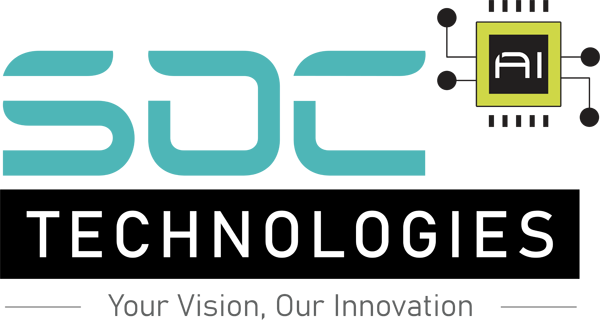Coding seems to be a career path that garners a lot of optimism these days. As our world becomes increasingly digital, skilled programmers are at the forefront of this transformation. However, certain market factors might temper our enthusiasm for a career in programming, with tech layoffs at major firms being a prime example.
These conflicting trends can create confusion about whether coding remains a viable career path for newcomers or those considering a career switch. In this piece, we’ll explore this question by examining statistics that can help us predict the software job market, exploring various career paths within the industry, and discussing strategies for navigating the job market during layoffs.
Is Coding Still a Good Career Choice?
The short answer is a resounding ‘Yes’. Despite recent layoffs at some tech companies, coding remains a highly desirable career option and a skill in high demand.
This is largely due to the increasing adoption of technology across various sectors. While many layoffs have occurred in the tech and cryptocurrency industries, new tech roles are continuously emerging in fields like agriculture and manufacturing. Many coders who lost their jobs in IT have been quickly rehired in other industries.
We’ll delve into statistics that can help us predict the software job market, explore various career paths within the industry, and discuss strategies for navigating the job market during layoffs.
Ultimately, the jobs lost in programming are likely to be filled quickly. Coding careers remain viable and, in many cases, more lucrative than before.
Coding Job Market and Demand
Let’s take a closer look at the current job market for developers with some relevant statistics.
The job market for coders is predominantly positive and is expected to remain so in the near future. According to the Bureau of Labor Statistics, job opportunities for software engineers, testers, and quality assurance analysts are projected to grow by 25% between 2021 and 2031, adding over 400,000 jobs during that period.
However, a report by McKinsey Global Institute indicates that automation might force up to 375 million people globally to switch jobs by 2030. AI’s impact on unemployment is expected to be uneven, primarily affecting low-skilled and repetitive jobs. This shift could exacerbate existing disparities, as those in these roles may lack the resources or skills to transition to new jobs.free
Despite these concerns, several indicators suggest that a career in programming remains viable. US News ranked software developer at the top of its list of the 100 best jobs in 2023, based on factors such as job satisfaction, potential for growth, and salary expectations. While AI is driving significant change, it also increases the demand for proficient professionals to operate these AI tools effectively.
With growing demand, numerous coding jobs are becoming available, with new roles emerging every year. Here are some of the top career paths you can pursue in coding:
1. Software Engineer
Software engineers develop applications for mobile devices and other platforms. This career is ideal for those who enjoy bringing ideas to life and making a direct impact on users. Learning JavaScript and Python is beneficial for aspiring software engineers.
2. Web Developer
Web developers help businesses create and manage their websites, handling both the appearance and functionality of webpages. Every business needs a website, making web developers highly sought after. Aspiring web developers should be proficient in JavaScript and HTML5.
3. Computer Systems Engineer
These engineers solve complex issues within applications or networks. They work with clients to understand system requirements and develop appropriate solutions. Python and C++ are valuable languages for computer systems engineers.
4. Database Administrator
Database administrators manage and organize large datasets for companies. They are essential for businesses that handle significant amounts of online data. Proficiency in Python and SQL is crucial for those pursuing this role.
5. Quality Assurance (QA) Engineer
QA engineers test new software applications to ensure they are market-ready. They identify issues, document problems, and provide feedback. With the rapid pace of technological advancements, QA engineers are in high demand. Learning Java or Python is advantageous for securing a job in this field.
Frequently Asked Questions (FAQs)
Yes, coding remains a valuable skill as AI and automation technologies often require skilled programmers to develop, maintain, and improve systems. While some routine tasks may be automated, the demand for creative problem-solving and specialized programming knowledge continues to grow.
The tech industry has seen fluctuations due to economic conditions, but coding skills are highly transferable. Layoffs may impact certain sectors, but opportunities in other areas like cybersecurity, AI, and data science remain strong. Coders can adapt to different industries and roles.
Coders should focus on learning advanced programming languages, understanding machine learning and AI algorithms, and developing skills in data analysis and cybersecurity. Soft skills like adaptability and continuous learning are also crucial.
Yes, industries such as healthcare, finance, government, and cybersecurity often have a stable demand for coding professionals. These sectors require specialized software solutions and security measures, providing more job stability.
Coders can explore roles in data science, AI engineering, software development, cybersecurity, and cloud computing. Additionally, fields like education, technical writing, and product management offer opportunities to leverage coding expertise in different ways.


